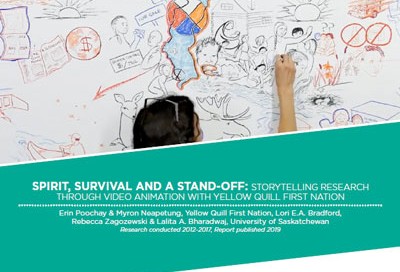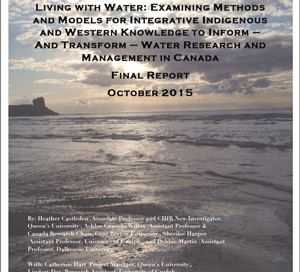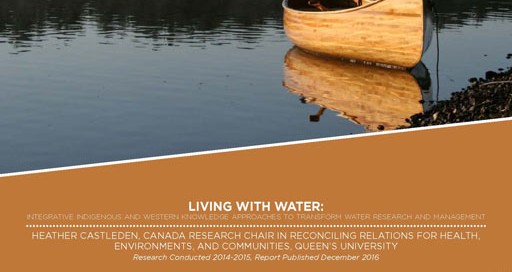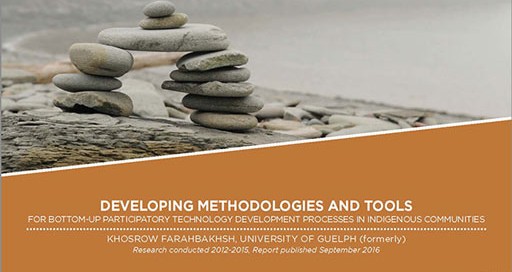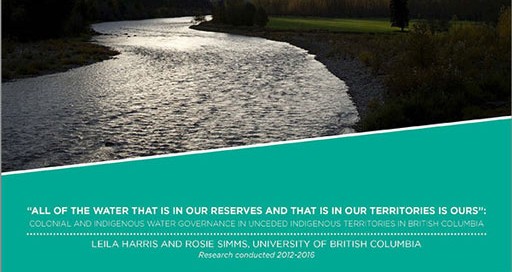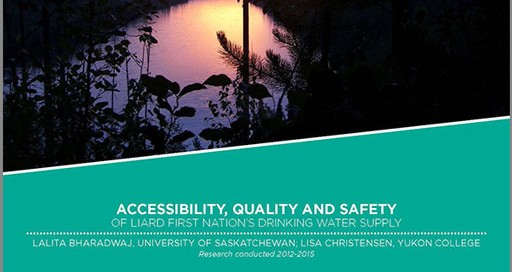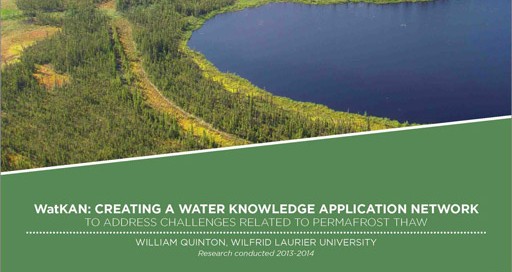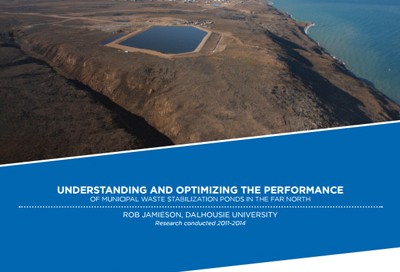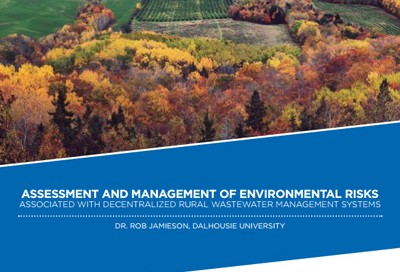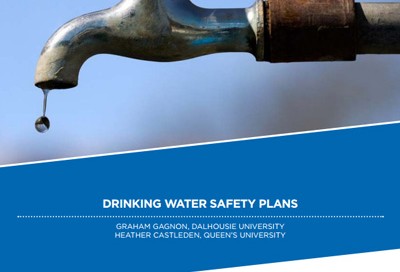Spirit, survival and a stand-off: storytelling research through video animation with Yellow Quill First Nation
This project was developed in response to a request from Yellow Quill First Nation to share Elders’ lived experiences of water on a reserve as a story, and reveal how those experiences influenced the state of the water today. Elders, community leaders, youth and researchers built relationships through a process of creating an empowering art-animation [...]


